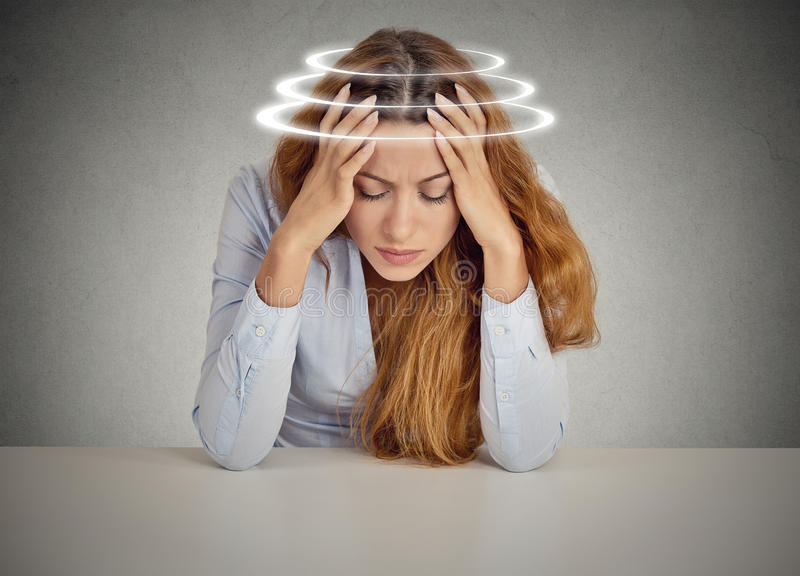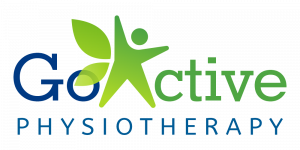Sometimes we hear about someone seeking vestibular therapy/physiotherapy due to certain medical conditions they are experiencing. Vestibular disorders are conditions that refer to problems like:
Vertigo
Vestibular therapy is a type of physiotherapy that helps people with vertigo, a condition that causes a sensation of spinning or dizziness. Vertigo is often caused by problems with the vestibular system, which is responsible for maintaining our sense of balance and spatial orientation.
Vestibular therapy works by helping to retrain the brain and the vestibular system to work together more effectively. It typically involves a series of exercises and movements that challenge and stimulate the vestibular system. These exercises include head and eye movements, balance exercises, and other activities designed to improve the patient’s ability to maintain their balance and reduce dizziness or vertigo.
One of the key components of vestibular therapy is habituation training. Vestibular therapy involves exposing the patient to movements or situations that typically trigger their vertigo symptoms, such as quick head movements or changes in position. Over time, the patient’s brain and vestibular system will learn to adapt to these movements and become less sensitive to them, which can help to reduce the severity and frequency of their vertigo symptoms.
Vestibular therapy also includes other physical therapy techniques, such as massage or manual therapy, to help reduce muscle tension and promote relaxation. Vestibular therapy can help patients regain their balance and reduce their symptoms of vertigo to resume their normal activities of daily living. This type of therapy is highly effective for many people with vertigo, particularly those with vestibular disorders such as vestibular neuritis or Meniere’s disease, imbalance, dizziness, loss of equilibrium, disorientation, and unsteadiness.
On average, more than 30% of people are known to experience this health condition. Access to quality vestibular physiotherapy for patients suffering from vestibular disorders is therefore of paramount importance. At GoActive Physio Clinic in Burlington, Ontario we offer superior vestibular physiotherapy treatment. The residents of Milton, Oakville & Burlington have the advantage of getting timely quality vestibular physiotherapy and treatment they can count on, should the need arise.

About Vestibular Disorders – Causes, Key Features, and Therapy
The vestibular system is basically a sensory system responsible for the sense of balance and spatial orientation that facilitates movement and balance. In other terms, it is associated with the auditory system, the inner ear, and the balance necessary for the system.
There’s a link between one’s inner ear and the brain. It is related to the ability to maintain balance, which helps us maintain efficiency and carry out our daily tasks normally. A person can develop a vestibular disorder if an injury or disease damages this system. People having the correct inner ear balance system are healthy and able to maintain their balance. A person is likely to suffer from this condition if it is affected. Here are the critical causes of vestibular disorders we need to know:
Inner ear infections: Infections of the inner ear, such as vestibular neuritis and labyrinthitis, can cause inflammation and damage to the vestibular system, leading to vertigo, dizziness, and loss of balance.
Meniere’s disease: This is a chronic inner ear disorder that causes vertigo, hearing loss, tinnitus (ringing in the ears), and a feeling of fullness in the ear. The exact cause of Meniere’s disease is unknown, but it is thought to be related to a buildup of fluid in the inner ear.
Benign Paroxysmal Positional Vertigo (BPPV): BPPV is caused by small calcium crystals that break loose from the inner ear and move into the semicircular canals, where they can cause dizziness and vertigo with certain head movements.
Head injuries: Trauma to the head, such as a concussion or whiplash, can damage the vestibular system and cause symptoms of vertigo, dizziness, and loss of balance.
Ototoxicity: Some medications, such as certain antibiotics and chemotherapy drugs, can damage the inner ear and cause vertigo and balance problems.
Aging-related changes: As we age, the vestibular system can naturally decline, leading to balance problems and an increased risk of falls.
Autoimmune disorders: Certain autoimmune disorders, such as autoimmune inner ear disease (AIED), can cause inflammation and damage to the inner ear, leading to vertigo and hearing loss.
Tumors: In rare cases, tumors of the inner ear or brain can cause vestibular symptoms, such as vertigo, dizziness, and loss of balance.
Viral Infection
Vestibular diseases can be caused by different types of viruses, including:
- Herpes simplex virus: This virus can cause vestibular neuritis, a condition in which the vestibular nerve becomes inflamed, leading to vertigo, dizziness, and loss of balance.
- Varicella-zoster virus: This virus can cause Ramsay Hunt syndrome, a type of facial paralysis often accompanied by vestibular symptoms such as vertigo, dizziness, and loss of balance.
- Cytomegalovirus: This virus can cause congenital vestibular dysfunction in newborns, leading to balance problems and delayed motor development.
- Epstein-Barr virus: This virus has been linked to cases of acute vestibular dysfunction, which can cause vertigo, dizziness, and loss of balance.
- Influenza virus: Some studies suggest that certain strains of the influenza virus may be associated with an increased risk of vestibular disorders.
Vestibular disorders are also a result of problems with the inner ear balance system. What aggravates the situation for many patients suffering from this condition is that treating it can be quite challenging since prompt diagnosis of the same is not that simple. It is, therefore, advisable for people suffering from these disorders to seek treatment at a leading vestibular physiotherapy clinic. The therapists here are trained to provide treatment appropriately by assessing the patient’s symptoms, reviewing their medical history, and treating them accordingly.
Vestibular Physiotherapy Procedures and Care
Vestibular physiotherapy procedures and care may vary depending on the specific vestibular disorder and individual patient needs, but some standard techniques and interventions include:
Assessment and diagnosis: A thorough evaluation of the patient’s medical history, symptoms, and functional abilities is necessary to identify the underlying cause of vestibular symptoms and guide appropriate treatment.
Canalith repositioning maneuvers: These are specific head and body movements designed to move displaced crystals (otoconia) in the inner ear that can cause benign paroxysmal positional vertigo (BPPV). Canalith repositioning maneuvers can be very effective in relieving vertigo and dizziness.
Habituation exercises: These involve repeated exposure to specific movements or activities that trigger vestibular symptoms to retrain the brain and vestibular system to become less sensitive to them over time.
Gaze stabilization exercises: These eye exercises can help improve visual tracking and reduce symptoms of dizziness and vertigo.
Eye exercises: These involve moving the eyes in specific patterns to improve visual tracking and reduce dizziness. Examples include following a moving target with the eyes or focusing on an object while moving the head.
Head movements: It involves moving the head in specific directions to stimulate the vestibular system and improve balance. Examples include turning the head side-to-side or up-and-down and tilting the head to the side.
Balance and gait training: These exercises improve the patient’s ability to maintain balance and walk safely. They may include standing on one leg, walking on uneven surfaces, and using balance boards or other equipment.
Strengthening and stretching exercises: They are used to improve muscle strength, flexibility, and range of motion, which can help reduce muscle tension and improve overall physical function.
Education and self-management strategies: Patients may be given information and guidance on lifestyle modifications, such as avoiding triggers and managing stress, as well as techniques for managing symptoms at home.
A qualified physiotherapist usually delivers vestibular physiotherapy with specialized training in treating vestibular disorders. Treatment plans are typically tailored to the individual patient’s needs and may involve a combination of different techniques and interventions. Regular follow-up and monitoring are essential to ensure that treatment is effective and adjusted as needed.
Vestibular Therapy at GoActive Physio Clinic in Burlington
GoActive Physio Clinic in Burlington offers vestibular therapy to help individuals with vestibular disorders improve their balance and reduce dizziness and vertigo symptoms. Our team of qualified vestibular physiotherapists creates individualized treatment plans using eye movements, head movements, balance training, and habituation exercises. With our expert care and guidance, patients can regain their balance and improve their quality of life.
